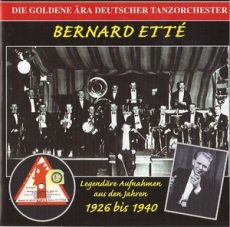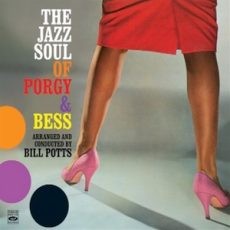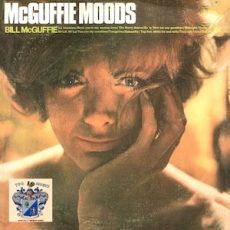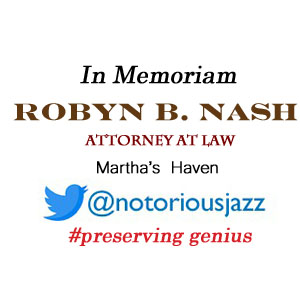
Daily Dose Of Jazz…
Isabel Hernandez-Cata was born on December 9 and raised in the Washington, D.C. metropolitan area. She completed undergraduate studies in music at University of Rochester, a Masters degree in Music Education from Boston University and Jazz Studies – Vocal Performance from the University of North Texas.
She founded the Isabel Hernandez-Cata quintet featuring a fluid lineup with guitarist Greg Loman. They met while working at a community theatre. They have performed with numerous DC jazz musicians Ricky Loza, Eric Byrd, Alison Miller, and Marcus Johnson.
A classical contralto, Isabel has sung in choirs, among them the National Philharmonic Chorale and Singers. Her diverse musical interests always return her to a love of the jazz art form to perform standards and jazz treatments of tunes from other modern music genres.
As an educator she teaches vocal music and piano in Montgomery County Public Schools. She has also served as vocal director, pit conductor keyboardist, and choreographer for dozens of school and community musical productions. She has been a choral director, combo leader, and teacher of Piano & AP Music Theory in Maryland Public Schools since 2001.
Hernandez-Cata composes, arranges, and performs as a jazz vocalist and bandleader. Her choirs have performed for US Presidents fifty times and she has had backing vocal stints for Al Green and Lionel Richie.
Vocalist Isabel Hernandez-Cata continues to perform, compose, conduct and educate.
More Posts: bandleader,composer,conductor,educator,history,instrumental,jazz,music,vocal

Daily Dose Of Jazz…
Bernard Etté was born on September 13, 1898 in Kassel, Germany. The son of a hairdresser, he studied music formally at the Louis Spohr Conservatory in Kassel. He initially worked with Carl Robrecht as an instrumentalist, playing piano and banjo in addition to violin.
In the early 1920s he assembled his own ensemble, and took up a residency in Berlin, Germany and performed on radio. The group also recorded in the 1920s, often with traveling American musicians. During the 1930s, as the Nazi party rose to power, Etté shifted away from jazz to light music, and led a large orchestra during World War II.
He played for wounded soldiers on behalf of the Nationalsozialistische Volkswohlfahrt in 1940 and for prison overseers at Auschwitz in 1944. After the war, he moved to the United States but was unsuccessful in adapting to new stylistic trends when he attempted a new career.
Returning to Germany, he led bands for luxury retreats in the East Frisian Islands and schlager and operetta backing bands in central Germany. By the end of the 1950s he quit actively playing music, and lived out his last years in an old folk’s home.
Bernard Etté, jazz and light music violinist and conductor died on September 26, 1973 in Mühldorf, Bavaria, Germany.
More Posts: bandleader,conductor,history,instrumental,jazz,music,violin

Daily Dose Of Jazz…
William Orie Potts was born April 3, 1928 in Arlington, Virginia. As a child he played Hawaiian slide-lap steel guitar and the accordion in his teens. At 15 he won an accordion competition with a performance of Twilight Time. After hearing Count Basie on the radio he started studying the piano in high school. He went on to attend Catholic University of America in 1946–1947, then formed his own group under the name Bill Parks, which toured in Massachusetts and Florida.
While serving in the Army from 1949 to 1955 he transcribed charts for Army bands. During this time Bill composed and arranged for Joe Timer and Willis Conover’s ensemble, The Orchestra, which was broadcasted on Voice of America radio. He wrote four of the songs on The Orchestra’s 1954 Brunswick Records LP, and recorded some of their live shows, which occasionally featured guest appearances from Charlie Parker and Dizzy Gillespie.
By 1956 he was leading a house band at Olivia Davis’ Patio Lounge in Washington, D.C. and Lester Young booked an engagement there. Potts convinced Young to record with him on two of the evenings. These recordings were later released as the Lester Young in Washington, D.C. sessions.
The following year he worked extensively as a composer, arranger, and performer for Freddy Merkle’s Jazz Under the Dome album which featured Earl and Rob Swope. Soon after this he suffered a crushed vertebra in a car crash and ended up in a body cast for three months. During his recuperation Bill began working on charts and arrangements for an album consisting of jazz reinterpretations of many songs from George Gershwin’s opera Porgy & Bess.
Fully recovered by 1959, he released a session under his own name titled The Jazz Soul of Porgy and Bess for United Artists Records. It featured a nineteen-piece band whose members included Al Cohn, Harry Edison, Art Farmer, Bill Evans, Bob Brookmeyer, Marky Markowitz, Zoot Sims, Charlie Shavers, Earl Swope, and Phil Woods. The album received a five out of five star rating from Down Beat magazine upon its release.
Following this, Potts spent several years working in New York City before returning to the D.C. area, where he worked locally in addition to touring with and/or arranging for Paul Anka, Eddie Fisher, Ella Fitzgerald, Stan Getz, Woody Herman, Quincy Jones, Stan Kenton, Ralph Marterie, Buddy Rich, Jeri Southern, Clark Terry, and Bobby Vinton.
In 1967 he released an album on Decca Records, How Insensitive, with a studio group called Brasilia Nueve. This group included Markowitz and Sims from the Porgy and Bess session , as well as Tito Puente, Chino Pozo, Mel Lewis, Barry Galbraith, and Louie Ramirez.
As an educator Bill taught music theory at Montgomery College from 1974 to 1990 and was the leader of the student jazz band. He also led a big band for occasional performances at Washington’s Blues Alley nightclub in the 1980s.
Retiring to Fort Lauderdale, Florida in 1995, pianist and arranger Bill Potts died of cardiac arrest on February 16, 2005 in Plantation, Florida.
More Posts: arranger,bandleader,history,instrumental,jazz,music,piano

Daily Dose Of Jazz…
Theodore Salvatore Fiorito, known professionally as Ted Fio Rito, was born December 20, 1900 in Newark, New Jersey into an Italian immigrant couple. His mother had sung light opera in Italy. He attended Barringer High School in Newark.
He was still in his teens when he landed a job in 1919 as a pianist at Columbia’s New York City recording studio, working with the Harry Yerkes bands: the Yerkes Novelty Five, Yerkes’ Jazarimba Orchestra and The Happy Six.
His earliest compositions were recorded by the Yerkes groups and Art Highman’s band. Fio Rito had numerous hit recordings, notably his two number one hits, My Little Grass Shack in Kealakekua, Hawaii and I’ll String Along with You. Over the course of his life he composed more than 100 songs, collaborating with such lyricists as Ernie Erdman, Gus Kahn, Sam Lewis, Cecil Mack, Albert Von Tilzer, and Joe Young.
Moving to Chicago, Illinois in 1921 he joined the Dan Russo band and the following year became the co-leader of Russo and Fio Rito’s Oriole Orchestra and opened at Detroit, Michigan’s Oriole Terrace, with a rebranding as the Oriole Terrace Orchestra. Returning to Chicago they did their first radio remote broadcast in 1924. Throughout the 1920s the orchestra played Chicago, St. Louis, Kansas City, Cincinnati and San Francisco.
The Fio Rito Orchestra’s vocalists included Jimmy Baxter, Candy Candido, the Debutantes, Betty Grable, June Haver, the Mahoney Sisters, Muzzy Marcellino, Joy Lane, Billy Murray, Maureen O’Connor, Patti Palmer, Kay and Ward Swingle.
During the 1940s, the band’s popularity diminished, but Fio Rito continued to perform in Chicago and Arizona. He played in Las Vegas, Nevada during the 1960s. In his last years, he led a small combo at venues throughout California and Nevada until his death.
Composer, orchestra leader, and keyboardist Ted Fio Rito, who was popular on national radio broadcasts in the 1920s and 1930s, died from a heart attack on July 22, 1971 in Scottsdale, Arizona.
More Posts: bandleader,composer,history,instrumental,jazz,music,organ,piano

Daily Dose Of Jazz…
Bill McGuffie was born on December 11, 1927 in Carmyle near Glasgow, Scotland. After three years studying the piano he had an accident as a child which caused the loss of his second finger of his right hand, but despite the accident he started playing again and modified his technique. By the time he turned eleven he was awarded the Victoria Medal for his piano proficiency by the Victoria College, Glasgow.
Finding it difficult he decided to stop playing until friends and colleagues suggested playing dance music. Towards the end of World War II when he was 17, he moved to London and began a career in 1946 playing in the Teddy Foster Orchestra at the Lyceum.
Working with other top bands followed until 1952 when he got his big break when the BBC formed their own show band run by Cyril Stapleton. McGuffie was a featured artist with a big public following, which led to a recording contract and he was voted in top place in the Melody Maker readers’ poll from 1953 to 1955. This led to him appearing in the early Esquire jazz poll winners records and recorded with trumpeter Kenny Baker’s Dozen.
He made a limited number of records which were jazz tinged and a big band record. Bigger success came with his light music and his albums with strings. Noted for his great musicianship and his impeccable good taste, his jazz records with the Kenny Baker Dozen and one track from the Melody Maker’s All-Stars are available. He also recorded albums with no jazz content, and worked extensively with bandleader Joe Loss, where he was featured.
He won an Ivor Novello Award in 1960 for his composition Sweet September, a Song Writers’ Guild Badge of Merit, and the British Academy of Songwriters, Composers and Authors Gold Badge of Merit.
Pianist Bill McGuffie, who went on to be a film composer and conductor, and with the onset of cancer, died on March 22, 1987 at the age of 59.
More Posts: composer,conductor,history,instrumental,jazz,music,piano




